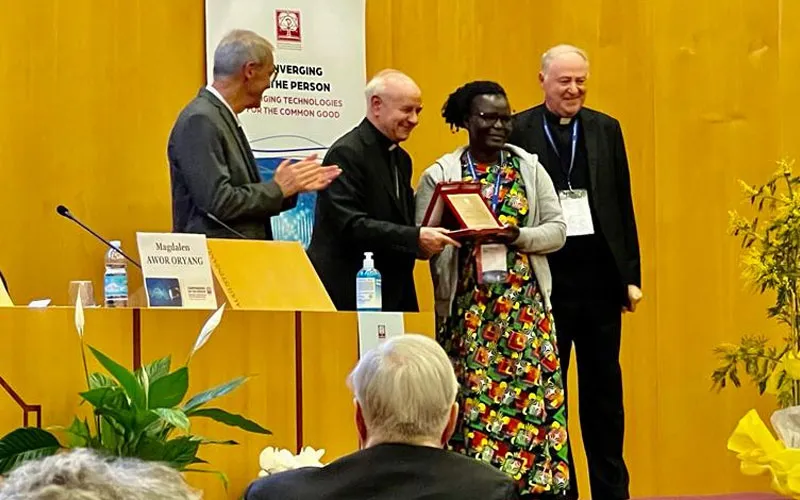 Credit: Pontifical Academy for Life
Credit: Pontifical Academy for Life
The health sector in South Sudan faces the challenge of accessibility, culture, and poverty, Magdalen told ACI Africa February 23.
“The roads are very bad; very bumpy, and the situation is worse during the rainy season. The hospitals can be so far from the people and we end up with mothers delivering along the way. Some walk for over 20 kilometers to access the nearest hospital,” Magdalen says.
Sometimes, it is the network, she says, and explains, “Someone may need an ambulance but lack the means to communicate with the hospital because mobile phone connectivity in South Sudan is so poor. Some resort to using bicycles which endangers the lives of their unborn children.”
The Catholic nurse also decries the negative aspects of South Sudan’s culture that limits a woman’s ability to make decisions, including those on her health.
(Story continues below)
“A young woman in labor cannot go to the hospital until her husband and his family allows it. Sometimes, this decision-making process causes delays, and by the time the patient is brought to the hospital, it sometimes is too late,” she says.
Medical complications also arise when a pregnant woman is made to seek alternative medication before they are brought to the hospital, the nurse says.
She adds that patients arriving at the hospital are sometimes at a point of starvation from walking long distances without food and water, this, the nurse further says, is because of the poverty of the people in South Sudan.
Poverty also affects the midwifery and nursing students at the hospital’s teaching wing and some of them are forced to stay away for lack of school fees.
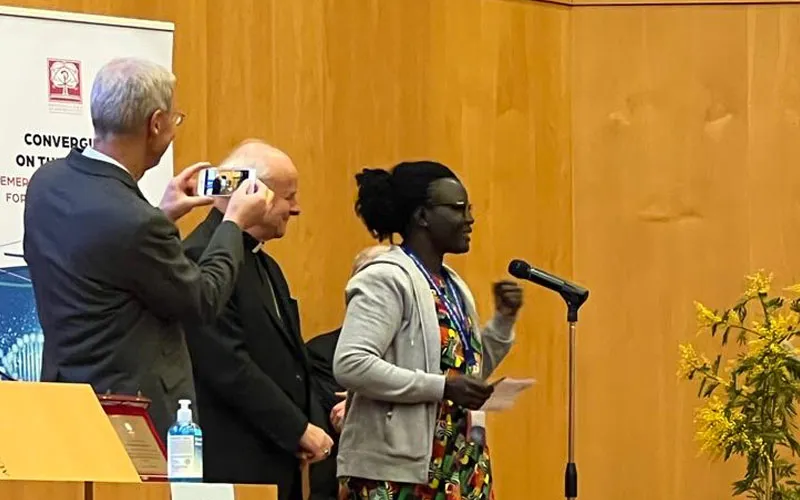 Credit: Pontifical Academy for Life
Credit: Pontifical Academy for Life
“The young men and women we have at the school have the willingness to learn. Most of them are very bright students but they don’t have the means to stay in school. Some of them walk for long distances to get to the class. We wish to have many of them stay with us but there is very limited space in the dormitory,” she explains.
Magdalen’s nursing and midwifery job at the hospital in Rumbek is not her first teaching experience in her career. Before going to South Sudan, the nurse worked with the Comboni Missionaries in Uganda, still under Doctors with Africa CUAMM.
Her first job, when she arrived in South Sudan in 2009, was at Mary Immaculate Hospital in Mapuordit, under the Comboni Missionaries.
The following year, she heeded the call of the then Local Ordinary of the Catholic Diocese of Rumbek, Bishop Cesare Mazzolari, to start a midwifery and nursing school in the Diocese.
The Catholic nurse has also worked at Lui Hospital in South Sudan’s Western Equatoria State, and at Yirol Hospital where she supervised the running of the health facility and 12 other primary healthcare facilities of the county.
In February last year, Magdalen moved to Rumbek State Hospital where she serves as a tutor, nurse, and midwife.
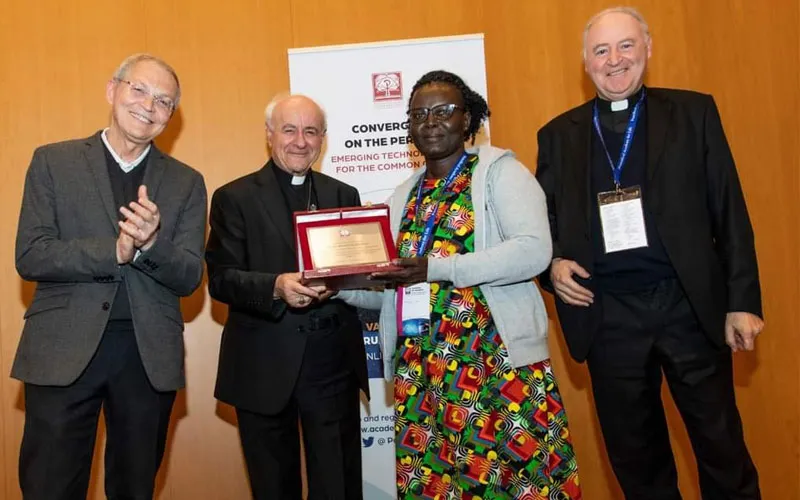 Credit: Pontifical Academy for Life
Credit: Pontifical Academy for Life
Asked what inspires her in her job, Magdalen told ACI Africa, “It is the feeling that I should do everything I can to prevent or lessen someone else’s suffering. I believe that this is what I have been called to do. And I always think about what would be left on my conscience should I not do what I have been called to do.”
Additionally, her Catholic faith gives her strength to work and rest very little, she says, and explains, “I sometimes work up to 2 a.m. and still wake up early enough for daily Mass. I have to start my day with personal prayers and Mass. Should I miss Mass, I spend the whole day mixed up and confused.”
“I always pray before touching a patient,” Magdalen says, and adds, “I say silently, ‘God, give me healing hands’. I know that without faith, one is likely to panic when handling a patient. But with faith, everything goes well, unless failure is inevitable.”
About what she intends to do with her award, the Ugandan nurse says, “I am going to show my students back in Rumbek the reward of handling patients from the heart. In this profession, it is never about money, but love, from the heart.”
“When dealing with humans who need medical assistance, it is important to handle them with love. Failure to do this and you slow down their healing process. You also drive them away and some end up fearing to go to the hospital,” she says.
Agnes Aineah is a Kenyan journalist with a background in digital and newspaper reporting. She holds a Master of Arts in Digital Journalism from the Aga Khan University, Graduate School of Media and Communications and a Bachelor's Degree in Linguistics, Media and Communications from Kenya's Moi University. Agnes currently serves as a journalist for ACI Africa.



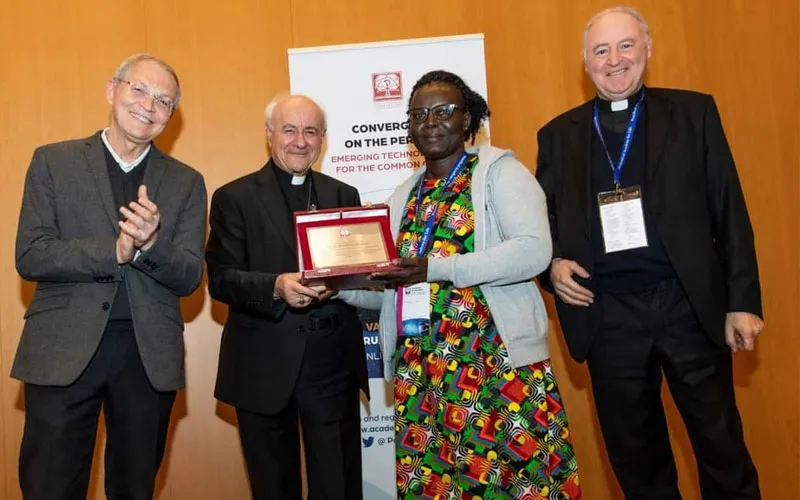
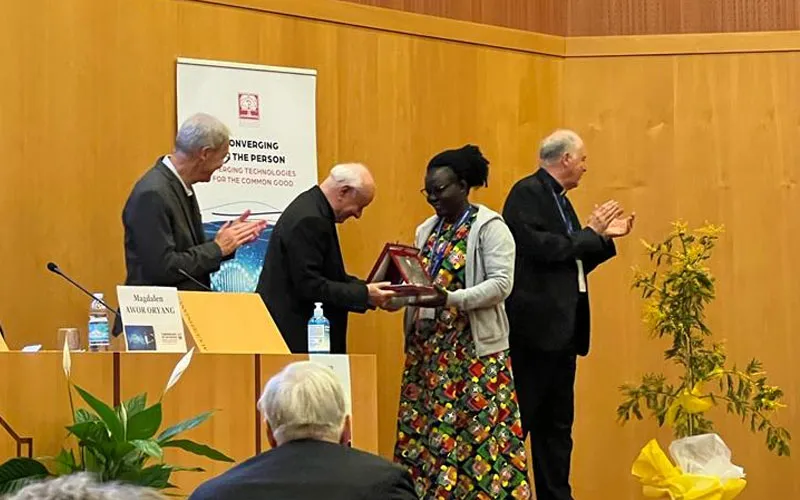 Credit: Pontifical Academy for Life
Credit: Pontifical Academy for Life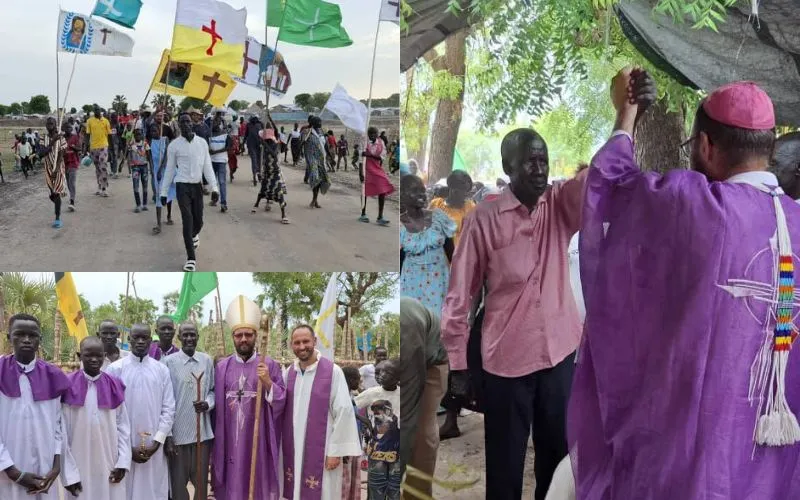
 Credit: Pontifical Academy for Life
Credit: Pontifical Academy for Life Credit: Pontifical Academy for Life
Credit: Pontifical Academy for Life Credit: Pontifical Academy for Life
Credit: Pontifical Academy for Life


